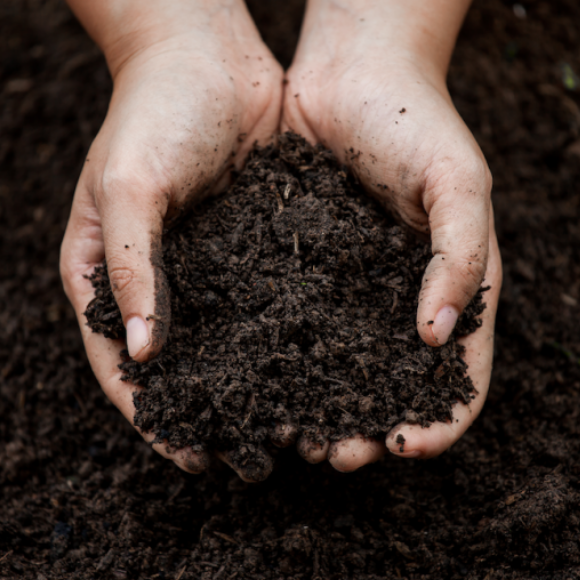The effects of climate change are not only being felt through extreme weather events, but also through loss of nutrients in our soil.
Prolonged droughts dry out the soil, causing the organisms in the soil to die and nutrients lost. Similarly, floods inundate the landscape, causing erosion which can wash away nutrients needed for plant growth.
For soil to become more resilient to climate change, the soil’s organic matter needs to be increased and the best way to do that is by adding compost.
Compost helps bind clusters of soil particles which will provide good soil structure. It helps sandy soil retain water and nutrients during dry seasons and equally hold nutrients tight enough during wet seasons to prevent them from washing out, though loosely enough so plants can take them up as needed.
Composting feeds diverse life in the soil. The bacteria, fungi, insects and worms in compost support better soil health and plant growth, ultimately boosting its resilience to cope with harsh weather conditions. Furthermore, compost bacteria break down organics into plant available nutrients, such as converting nitrogen from the air into a plant available nutrient through photosynthesis.
Eric Love, Chairman of the Centre for Organic Research & Education (CORE), says that we can all do our part, even just by composting our garden and food scraps.
“Adding more compost to the soil through gardening and agriculture practices will increase carbon that can favourably change the planet’s carbon balance, and avoiding organic waste going to landfill will greatly help to reduce harmful emissions”, he says.
“These are things we can all do to reduce the impacts of climate change”.
May 2nd to 8th marks International Compost Awareness Week (ICAW) in Australia, to promote the importance and benefits of composting. Visit your council’s website or Facebook page to see what’s happening in your neighbourhood, from workshops on worm farming or keeping chickens to offers of free mulch.
For instance, Brisbane City Council is running free food, gardening and composting workshops throughout May as well as offering residents up to $70 off organic recycling equipment through its Compost Rebate Program.
To get started, here are some ideas for disposing your household organic waste:
• Compost waste using a compost bin or heap;
• Feed it to a worm farm, avoiding citrus, spicy food, garlic, onions, meat, dairy and processed foods such as bread or pasta;
• If you live in an apartment, a Bokashi Bin might be more suitable or you could look for a community garden nearby to give your organic waste to, as they usually have a few compost bins and worm farms.
For more ideas and information about composting, visit compostweek.com.au


